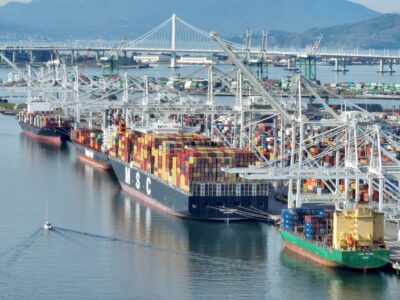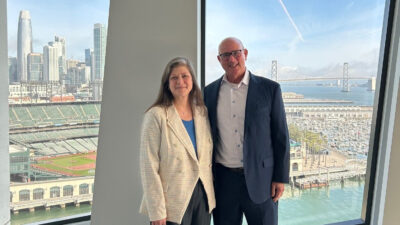Council Calls on BART to Dramatically Accelerate New Fare Gates to Better Secure System, Help Bring Back Riders and Generate Badly Needed Revenue
Modern, secure fare gates could generate tens of millions annually in revenue for the financially strapped system and make system substantially safer, cleaner
San Francisco—The Bay Area Council today called on BART to accelerate its timeline for installing new, more secure fare gates—moving completion from 2026 to 2024—to address serious concerns about crime and safety that have kept riders away from the system in droves and to increase fare revenue as the system seeks more funding to avoid fiscal calamity and dramatic service reductions.
In a letter to BART Board President Janice Li and General Manager Bob Powers, the Council called on BART to complete the installation of the next generation fare gates at least a full year ahead of its current schedule, including installing new fare gates at each of its ten core stations in San Francisco and Oakland by July 1, 2024, and all at all stations systemwide by no later than December 31, 2024.
“Time is our enemy when it comes to the survival of the region’s backbone mass transit system,” said Jim Wunderman, President and CEO of the Bay Area Council. “We applaud BART for taking the initial steps to begin the process of installing new fare gates, but it’s unacceptable that with BART’s very survival on the line there is not greater urgency to complete this critical upgrade much sooner than currently scheduled. It can be done and it must be done.”
Read the Council’s fare gate letter to BART>>
Fare evasion is incredibly pervasive throughout the system and is contributing significantly to crime and perceptions of crime, as well as concerns about the cleanliness of the system, the Council’s letter stated. BART’s own data backs up these concerns, with survey results from earlier this year that revealed a 22% increase in violent crime and an 86% increase in property crime compared to the same time the previous year. A BART point in time survey found that 25% of riders had witnessed fare evasion on a single day, a 6.3% increase over the previous year and a figure that likely underestimates the problem.
A poll the Bay Area Council and EMC Research in May 2023 found that 62% respondents want BART to improve fare gates to prevent fare evaders and 66% want fare gates to fully enclose station entrances.
Addressing crime, safety and fare evasion could produce a significant financial windfall for BART, which has been desperately seeking new funding after ridership plummeted during the pandemic and has been extremely slow to recover. In the Council’s May poll, 78% of those surveyed said they would ride BART more often if it was safer and cleaner. A Council analysis of the findings found those numbers could result in 300,000 weekday riders returning to the system along with the many millions of dollars in fare revenue they represent. Combined with revenue from reduced fare evasions, the Council estimates BART could reap tens of millions of dollars in revenue per year.
In calling for an accelerated timeline, the Council requested that BART provide more details on its own fare gate installation plans. BART so far has offered only a general timeframe for when exactly it expects to complete the work and what stations would be prioritized, among other details.
“Approving a monumental contract without a detailed plan in place and setting an estimated completion date that is years away is an enormous missed opportunity and takes away from the significance of the vote to move forward with the next generation fare gate contract,” the Council’s letter stated. “Every day, week, and month that passes without effective fare gates equals more crime, fewer riders, and less money to sustain the system long-term. Improvements cannot wait.”





